Chipps reports back after a couple of days of riding on GT’s newly launched trail bikes.
Over the course of a couple of days I had a chance to ride both the GT Force and the GT Sensor. Both bikes were the top of the range flagship models and both bikes come in a penny under four grand, though again in both cases prices start much lower for the alloy framed models.
GT Force First Impressions
First up was a big mountain ride (on a big mountain) on the GT Force. Resplendent in its blue and yellow GT livery, it’s a very smart looking bike. It’s also the odd one out in the range, being the only bike over both models to come with Fox suspension front and rear.
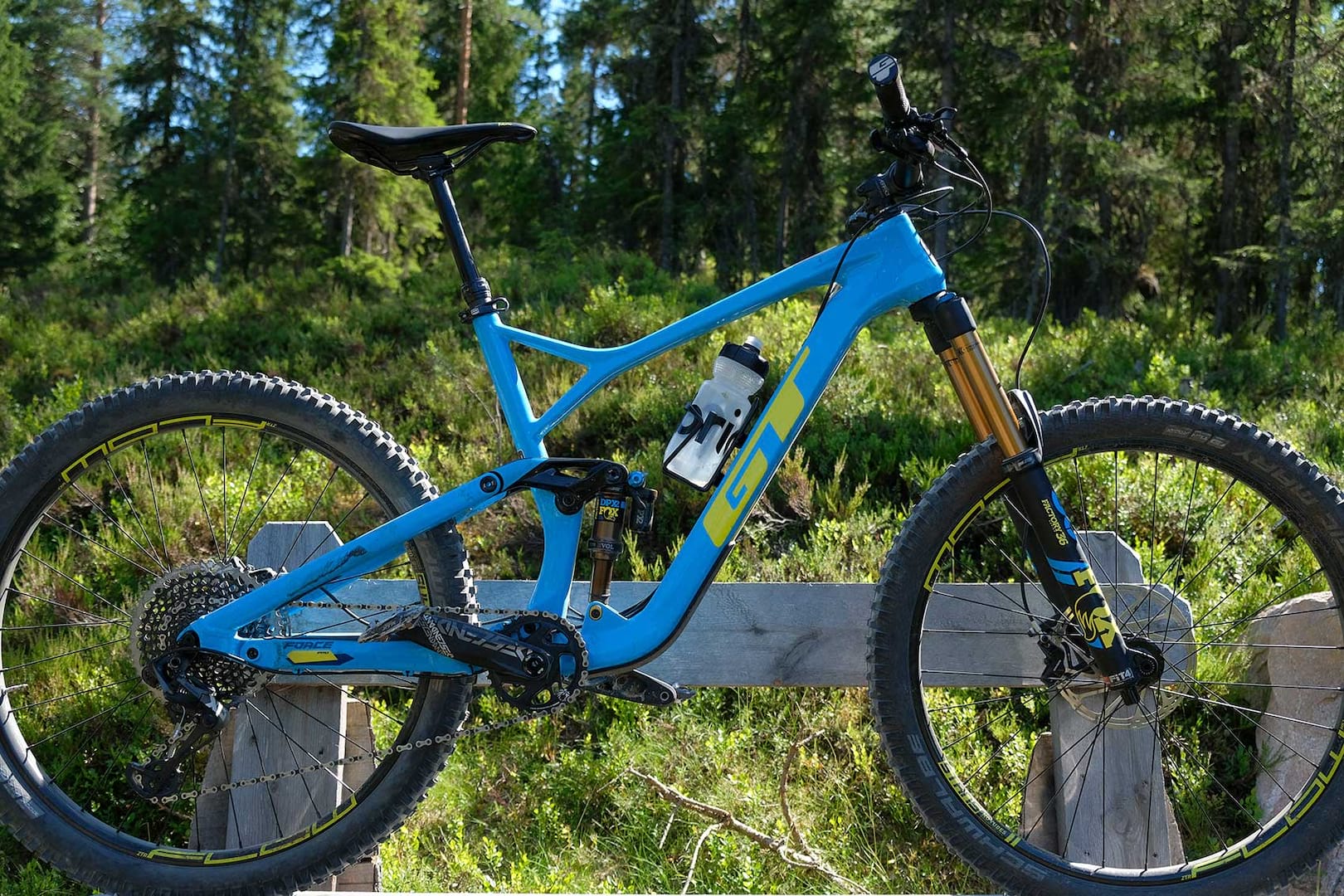
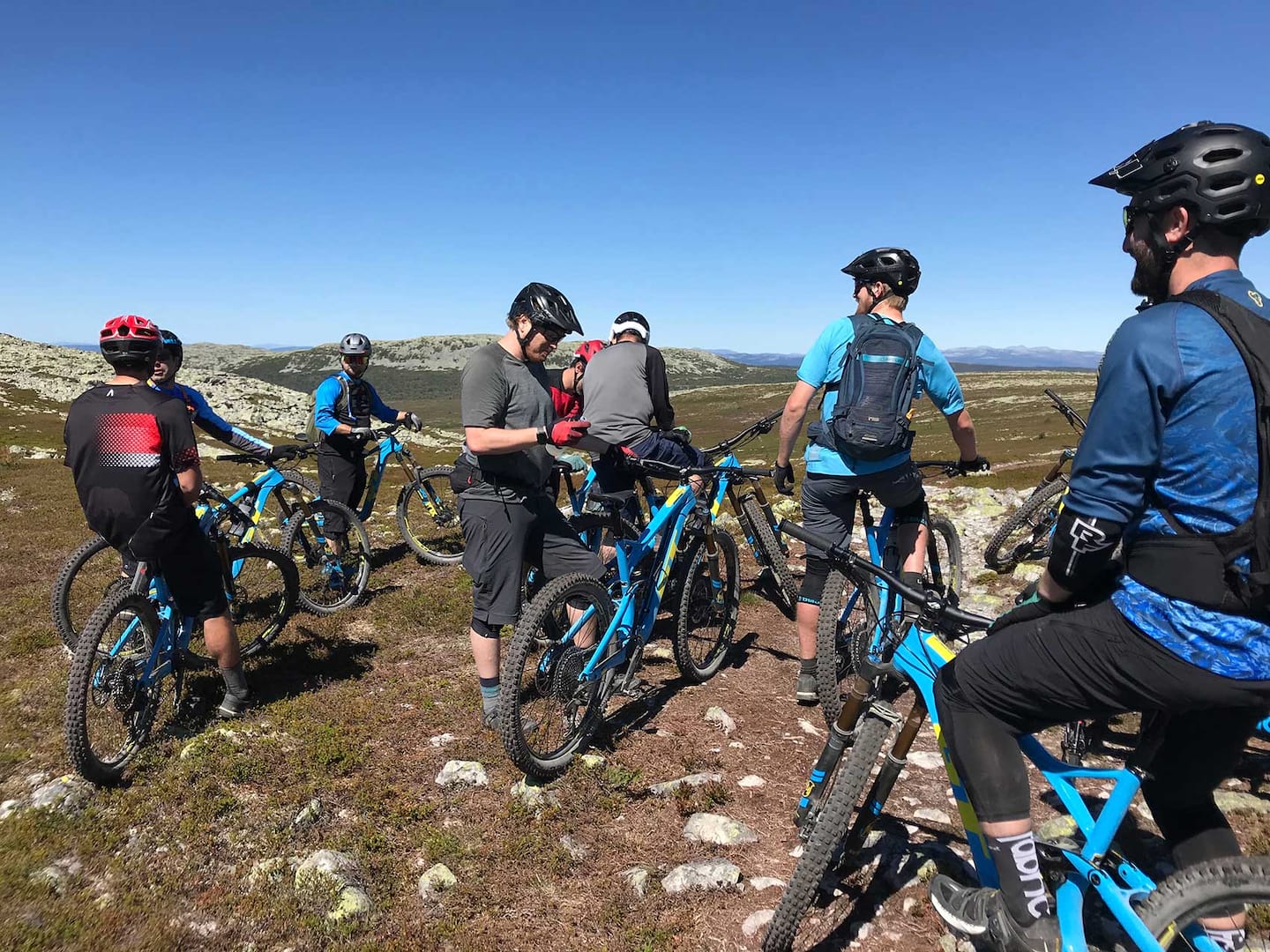
At 5ft 9in/175cm, I usually sit between sizes, able to ride a large or a medium frame. Guessing that GT would be going longer and slacker like everyone else in the bike world, I opted for a medium. While this fit me vertically, with a 125mm dropper post and perhaps room for a 150, I found the steep (76°) seat tube combined with the modest 440mm reach to be a little cramped feeling, though that feeling went away after a while once I got used to the position.
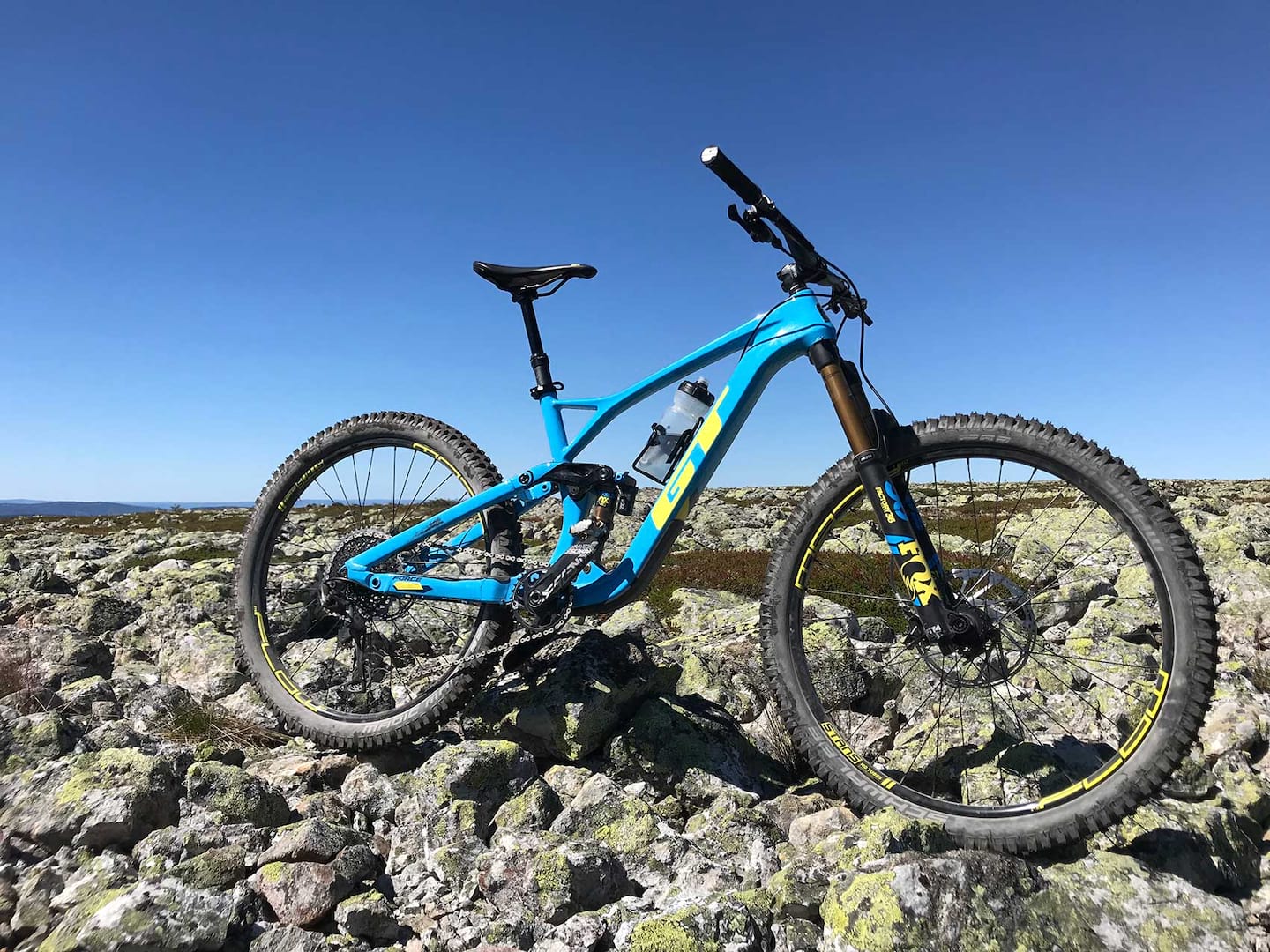
Both the Force and Sensor use GT’s new LTS system – a name that old GT fans will instantly recognise, and like those bikes from yesteryear, this too is a four bar linkage with a trunnion shock, only now in a more conventional rocker actuated form with a vertical shock in front and parallel to the seat tube. The rearmost pivot is on the chainstay for true four bar linkage performance (presumably due to the expiry of the Horst Link patent, which is allowing many designers more freedom to make better working suspension systems…)
The set-up sag is critical on the LTS system, at 25% – which, due to the linkage rate doesn’t actually correspond with the markings on the rear shock – not a very intuitive move there. With some tyre and fork tweaking, we were on our way up the mountain, with cheery Scandanavian guides from the local Trysil Bike Arena.
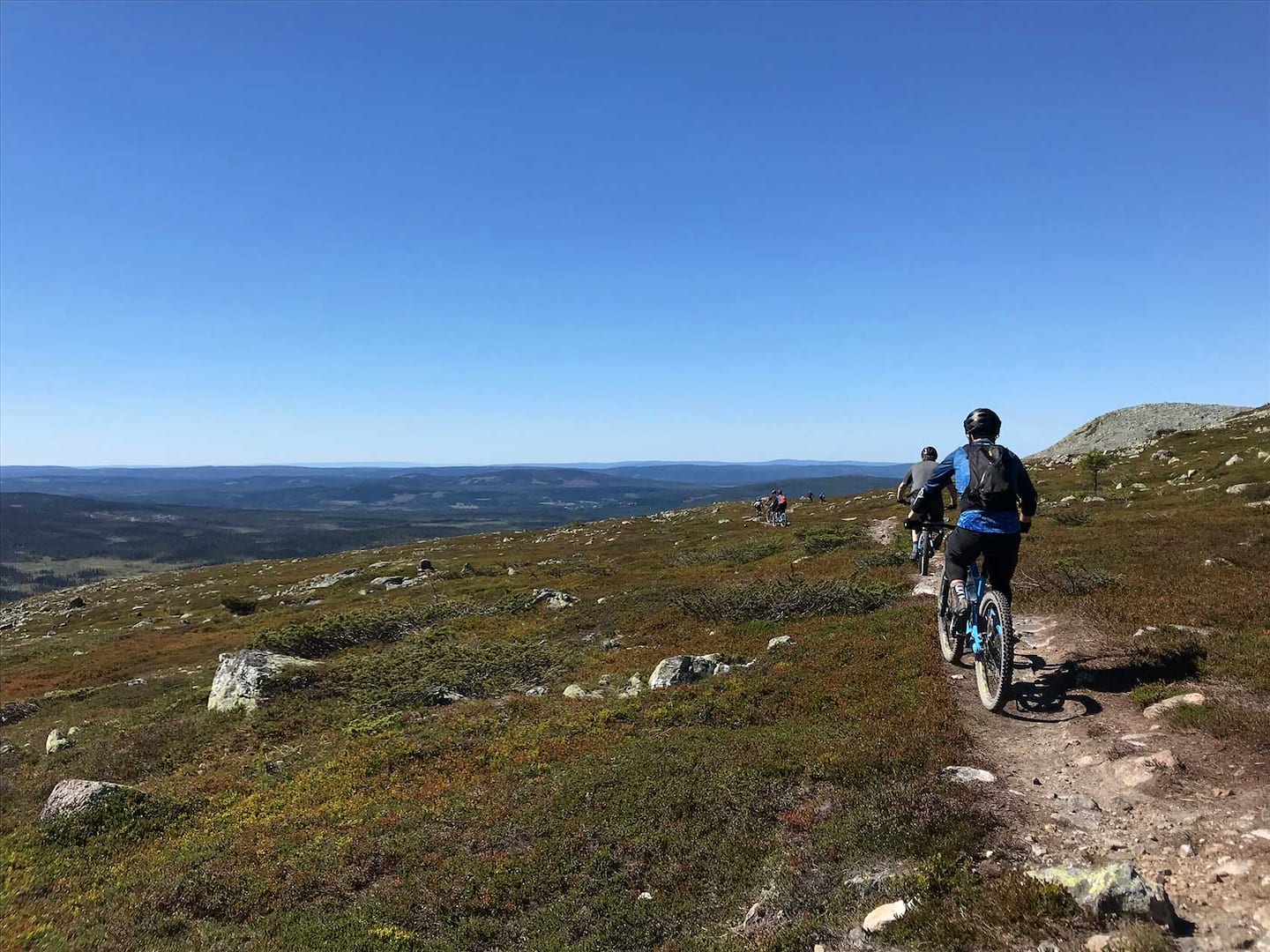
Our first trail was a very Scottish-like moorland trail, with hard granite boulders, heather and a grippy, gritty surface. Here, the bike worked really well, climbing well on technical rocky problems without a hint of wallow or pedal kickback, really a smooth climber. Even in low mode on the flip-chip, I rarely struck pedals on the scenery. With slower speed descending, over nadgery rock gardens, the Force was very stable and sure-footed. At higher speeds, on narrow, woodsy, six-inch wide singletrack, the bike was fun and, again, pretty stable.
I did have a couple of moments where I felt the front wheel washing wide, but that could have been either due to the smaller size of the bike or the harder Performance compound Schwalbe tyres that were fitted to the test bikes (production Force Elite Carbons will get softer Evolution tyre treads). I did try letting a little air out of the rear shock to try nearer 30% sag (as not recommended by GT) and found that the warning was correct. With too little air, the bike wallowed and bobbed a lot more, so I added the air back to get back to 25% sag.
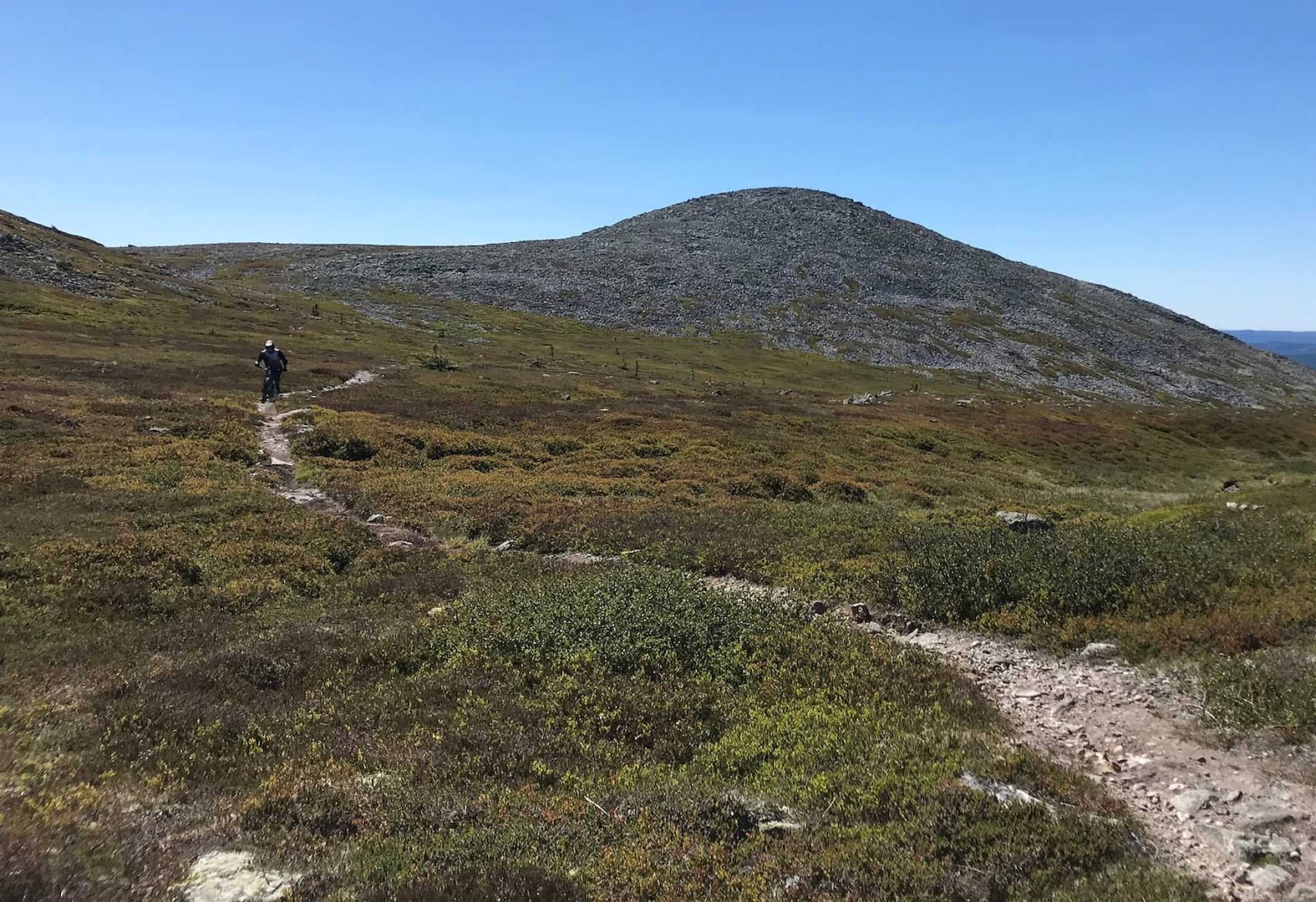
There wasn’t really anywhere on our test ride to test the Force’s performance on repeated big hits, like you’d find at a bike park or in the Lakes, where I feel this bike will find a lot of favour. In fact, the Force Elite with its coil-over shock and £2.5K price tag looks like a bike-shuttle favourite.
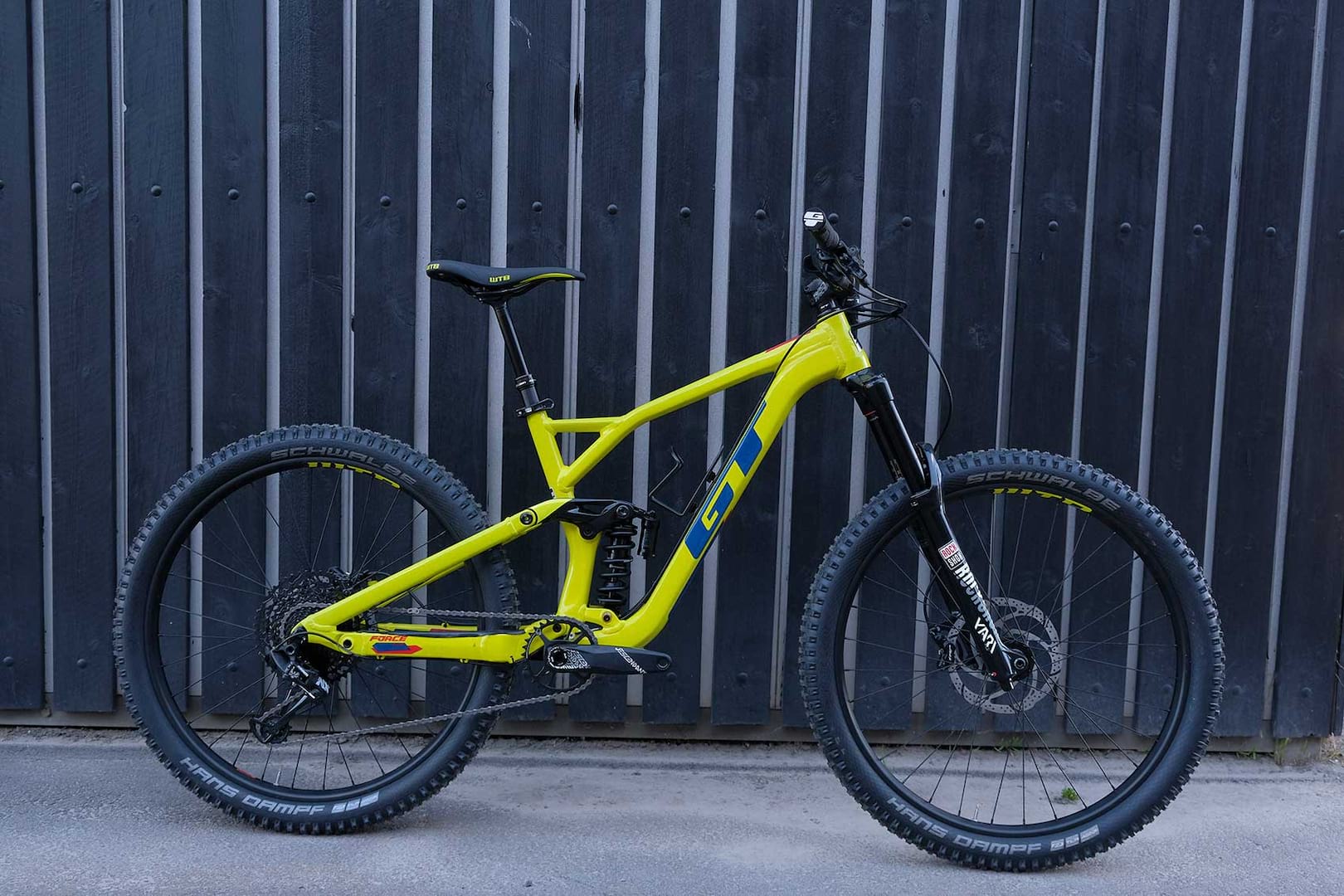
The Force platform will apparently take a coil over shock without needing any tweaking, and a couple of the GT staff were riding bikes with coilovers on their own bikes. A couple of riders complained that the bar height and stack measurement of the bikes was a little low and it was interesting to see that those GT staffers with coilovers fitted, often had a higher rise bar than stock. That’s something that’s not too big an issue to play with once you start setting the bike up to your preferences though.
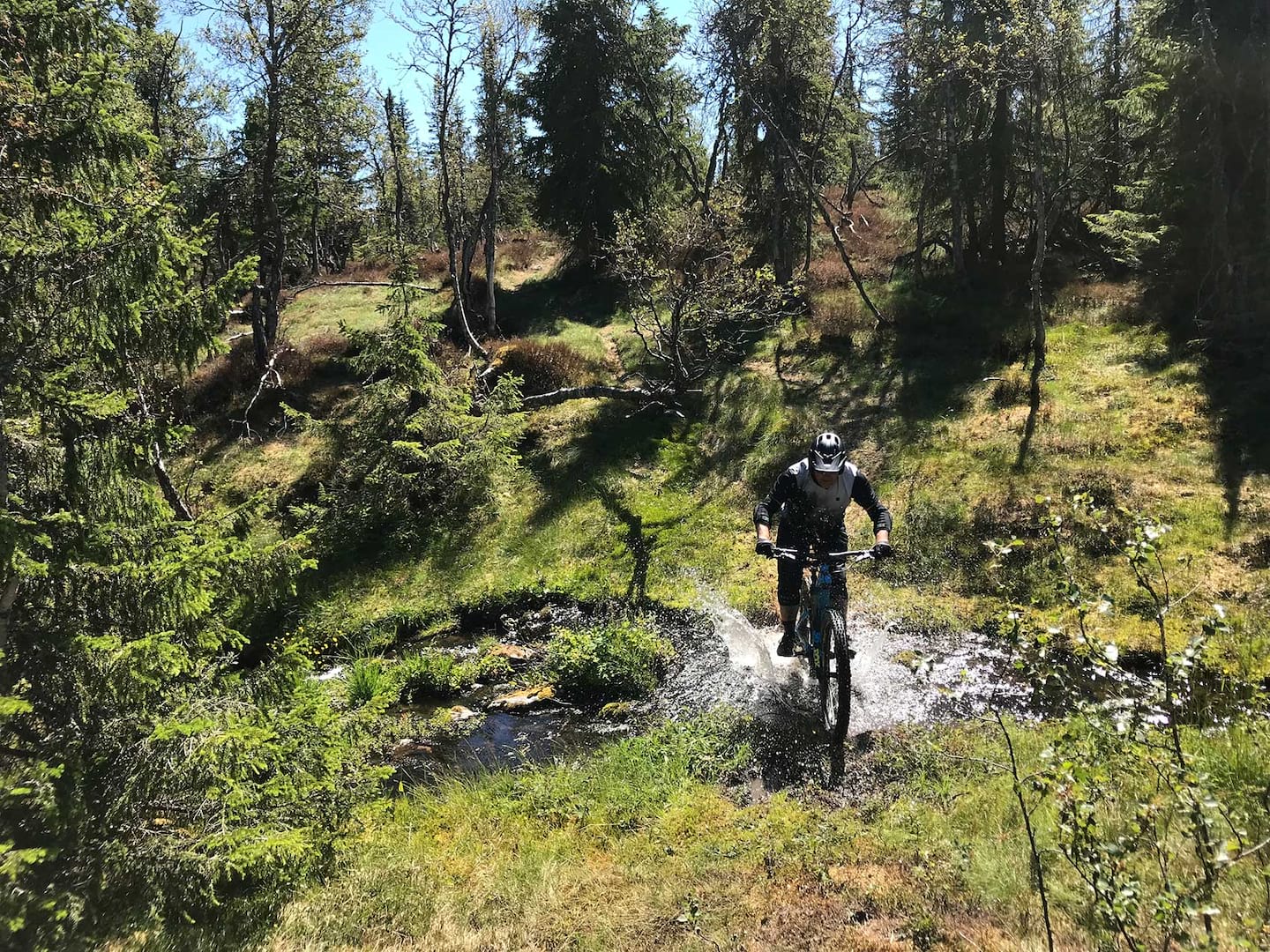
Talking of which, the general spec on the bikes was great, with nothing standing out as needing immediate upgrading. The entire range is fitted with SRAM Eagle one-by only – whether that was NX Eagle 11-speed or X01 Eagle 12-speed. Brakes on the Force are obviously designed with high speeds in mind and this Force Carbon Pro didn’t lack here at all. Wheels were wide, low profile Stan’s Flow Mk3 rims, with colour coded decals and despite some rocky surprises (and one bump-jump off a kerb) there were no stops for punctures on our ride.
Despite our ride seeming to be mostly uphill, even though we took two chairlifts, we all returned happy, tired and ready for food.
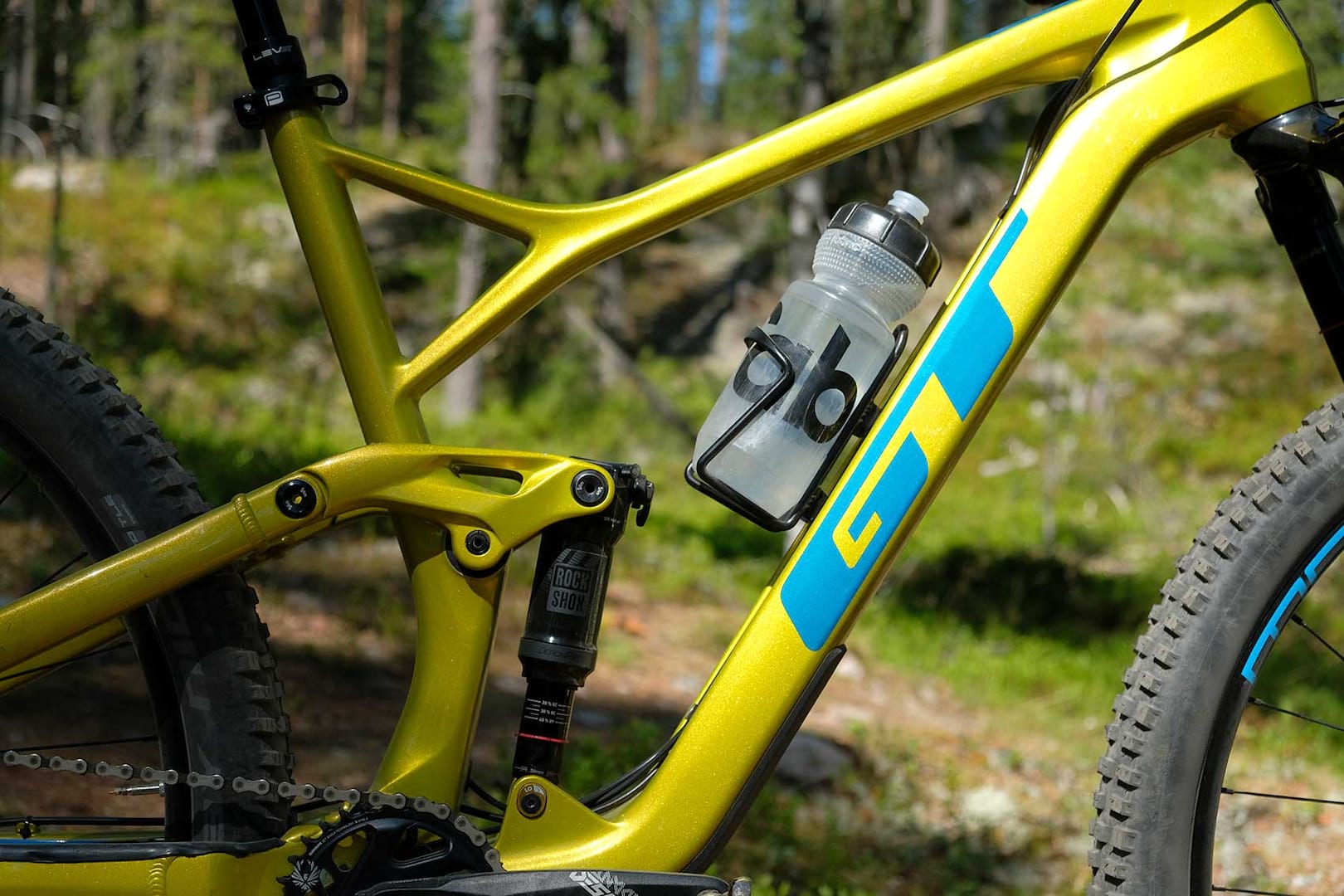
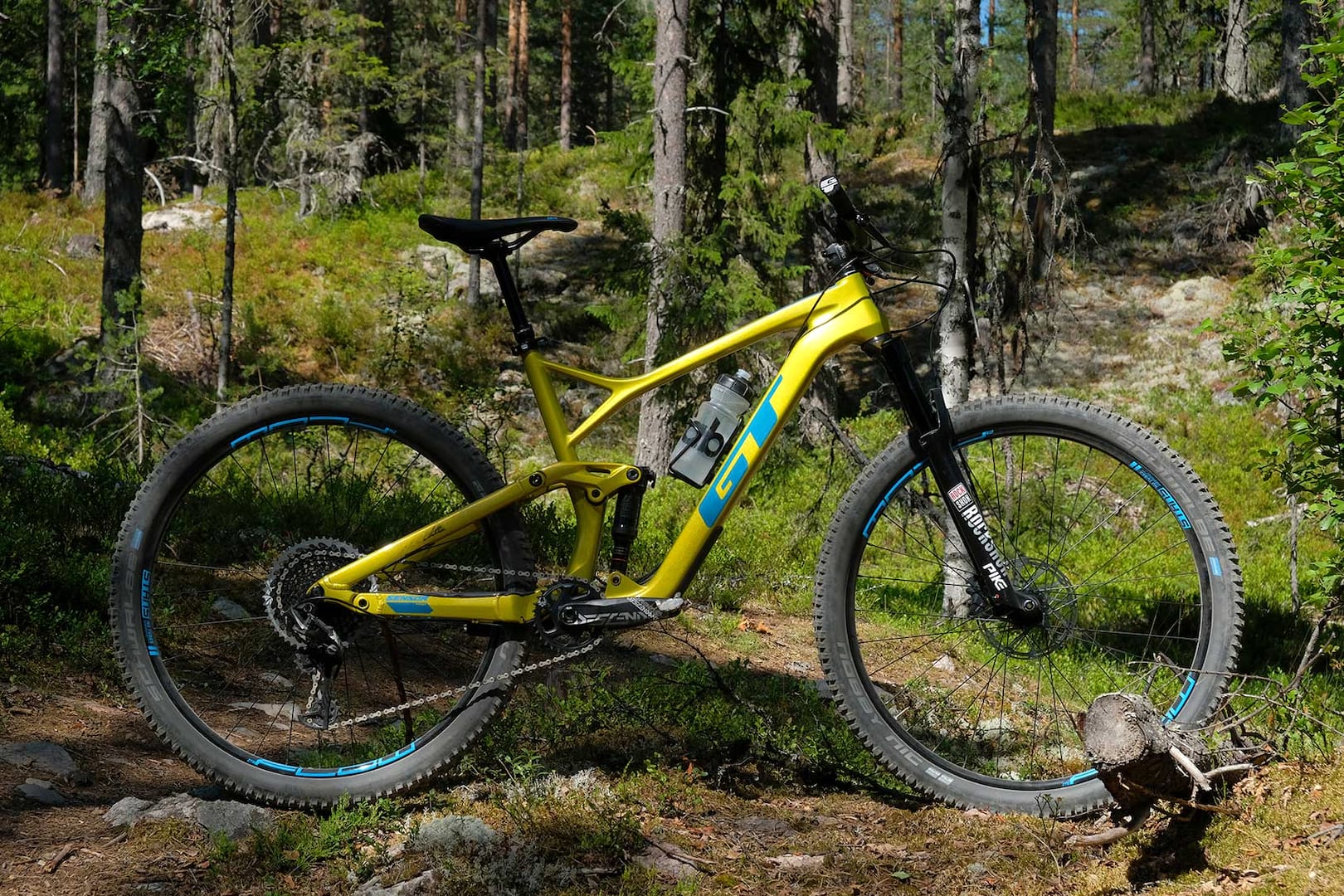
GT Sensor – First Impressions
For my ride on the 29er Sensor, I swapped to a large-sized bike. This, reach-wise, fitted me perfectly, but I discovered that the 150mm dropper post, as fitted to the large bikes (mediums get a 125mm) was too tall for me, even with the post as far down in the frame. It was nearly 25mm too tall, so I swapped the post to a 125mm post and that fitted fine. However, this implies that the frames are all a little tall for their length (or short in the reach for their height if you want to look at it that way…)
As droppers are becoming ubiquitous, most manufacturers are dropping standover and seat tube heights, but due to the incorporation of the signature GT ‘Triple Triangle’ in the frame design, it seems to have forced the frames to be a little taller than is in vogue right now.
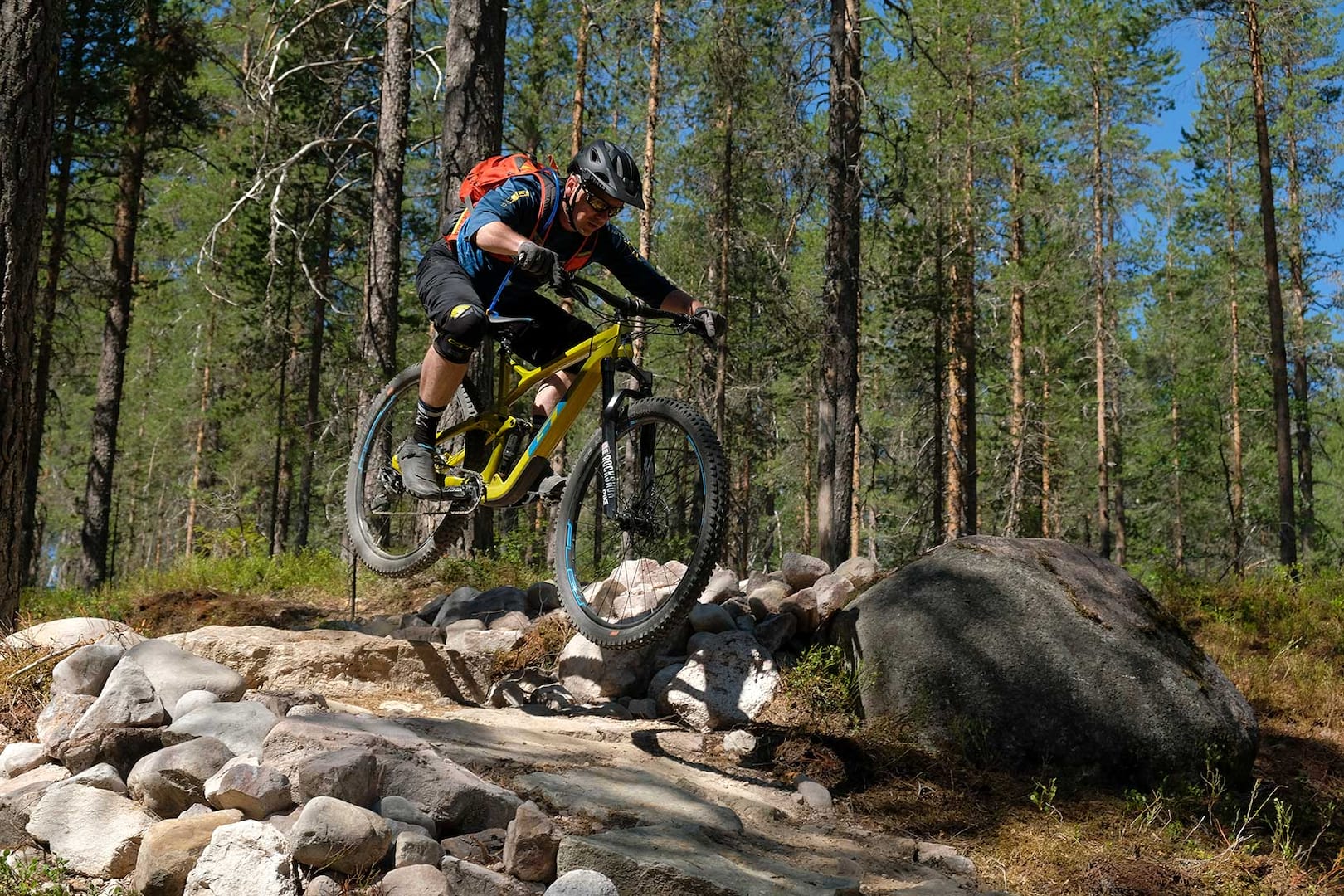
Or it might just be that I have stumpy legs for my height. Once the 125mm post was fitted, though, the bike was fine and we made off for the incredible wooded bike park above Trysil. Here a labyrinth of trails wound over modest inclines for a distance of several kilometres, offering berms, jumps, drops and rock gardens. An ideal playground for our 130mm 29ers.
The Sensor shares nearly all of the same riding features as the Force. It even, incredibly, appears to share exactly the same angles (65.5°/76°) as its 27.5in stablemate, which sounds like it shouldn’t work. But on the Sensor, it definitely does.
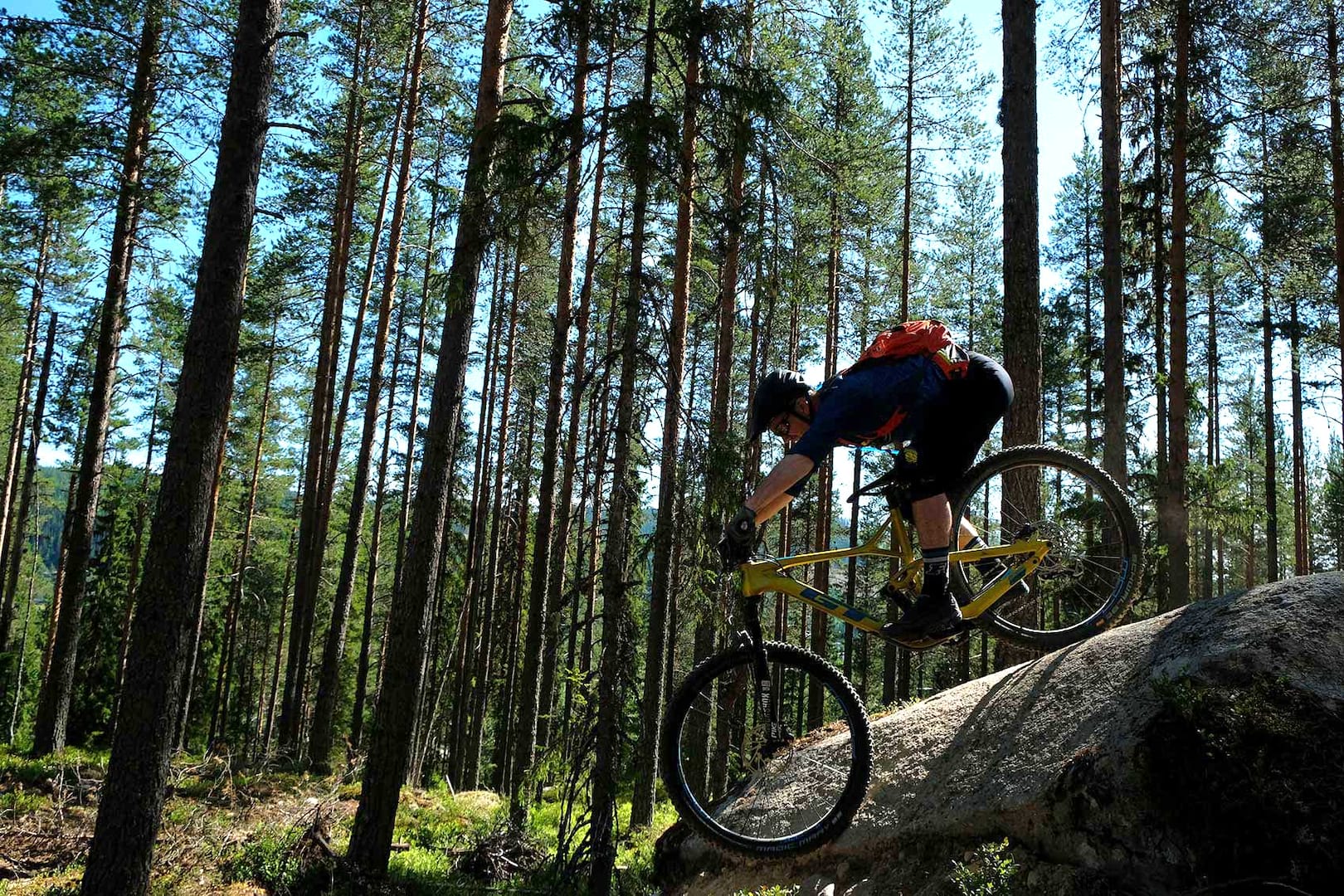
Given that the Sensor is a 130mm travel 29er, putting it into the realms of the Hightower, the Evil Following and the new Stumpjumper ST, it rides like a trail bike that you could live with day in, day out. Its climbing skill is impeccable, with the front wheel tracking straight without a hint of wandering that you’d expect from such a slack head angle. The bike remains composed through rock gardens, whether you’re pedalling or freewheeling, the big wheels soaking up the hits with pleasure. The Sensor is a really fun bike to ride – you can throw it into berms and over drops, but there’s still enough support there that a spirited chase out the saddle after your mates is still on the cards.
Overall
Of the two bikes, the Sensor was an instant favourite. For a mid-travel 29er (with 27Plus capabilities) it rides very well up and down hills and it’s a bike I’d be keen to spend more time on. With prices for the carbon front/alloy rear bikes starting at £2499, they seem well priced even against online rivals and it’s refreshing to see a top-spec bike for ‘only’ four grand.
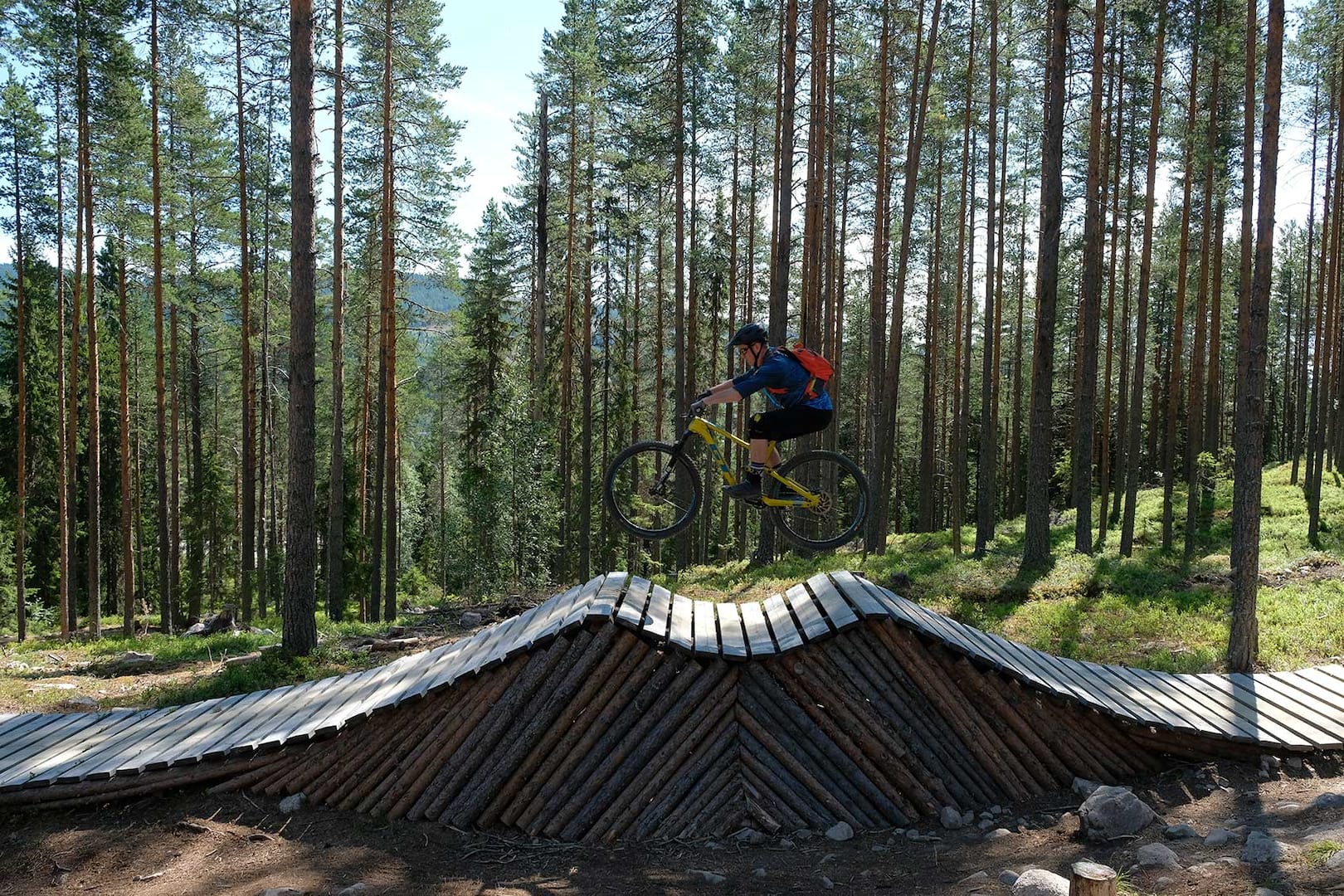
The Force is a bike that I also need to spend more time on, mostly to try it in more familiar surroundings and in conditions that I think would suit the bike better. In terms of build and performance, it has the same advantages going for it in terms of spec and price. It also has the same slightly tall frame, which might limit its appeal for riders who really like getting the saddle out of the way.
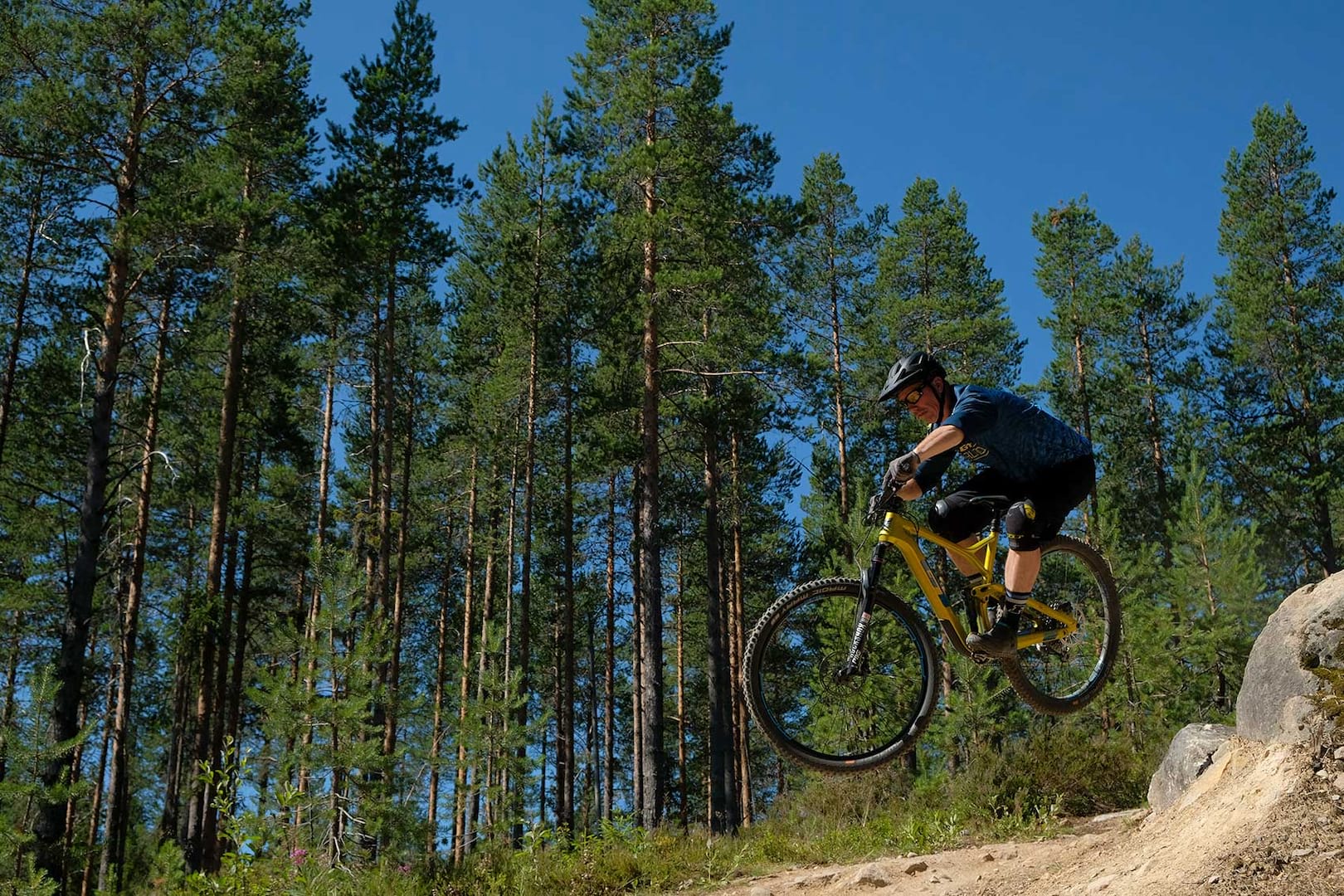
Look for tests on both bikes when they start appearing in the UK at the end of the summer.
Disclosure
Chipps flight and accommodation were paid for by GT’s UK importer, CSG UK.





